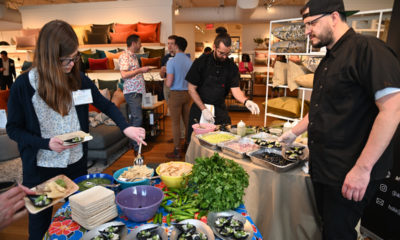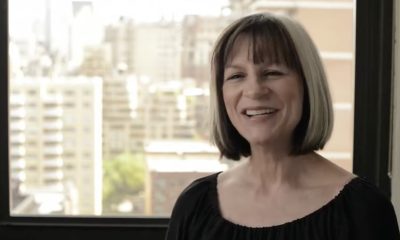Arts & Entertainment
LGBTQ youth inspired to action by “Cured” documentary and country’s homophobic past
“Cured” documentary a revelation for LGBTQ youth
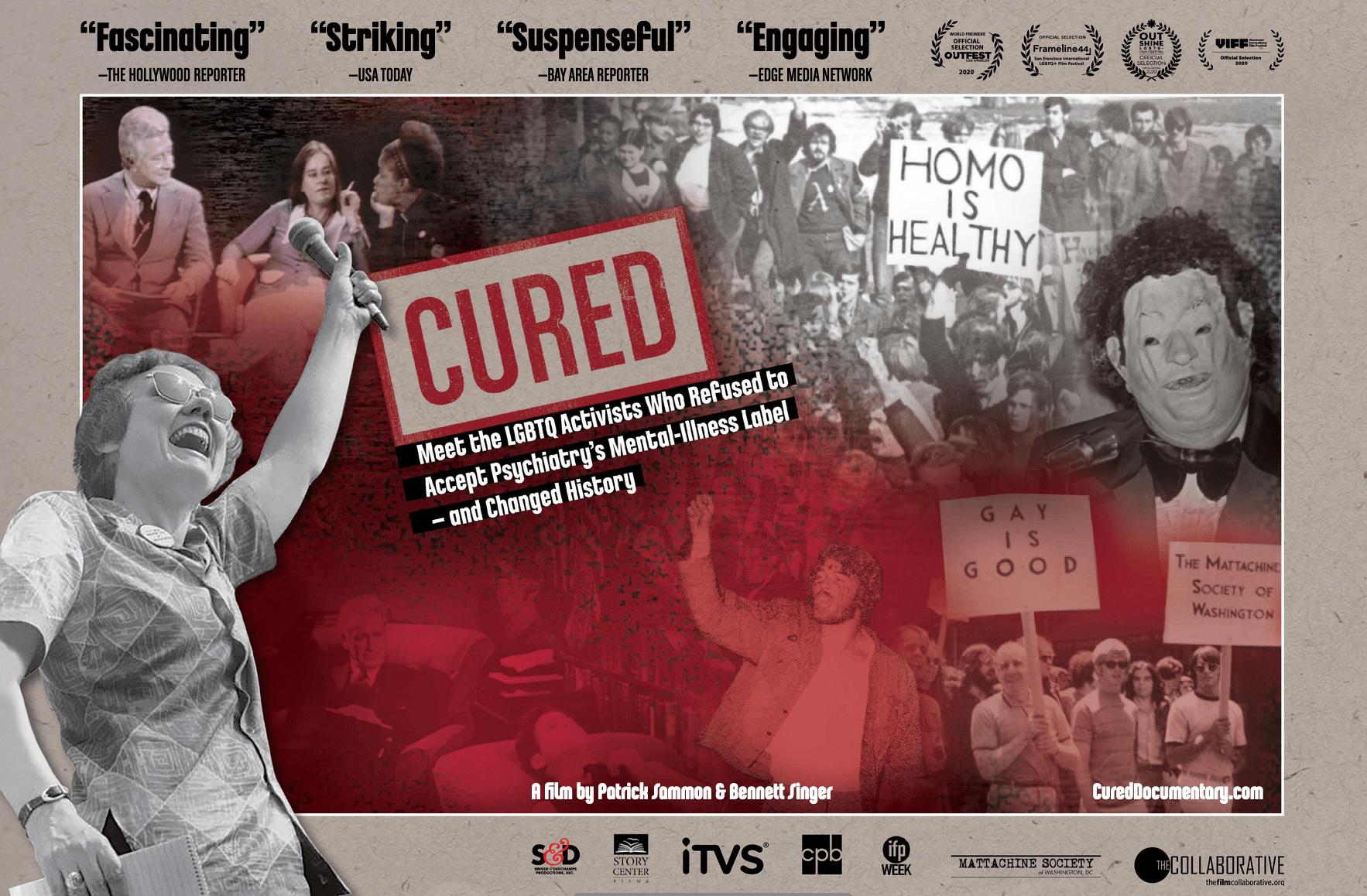
A new documentary’s archival footage of the country’s homophobic past opened the eyes of four young members of the LGBTQ+ community who were only dimly aware of the events the film describes.
“Cured,” which aired on PBS’ Independent Lens on October 11, was a revelation to the youth– who work with the D.C.-based Urban Health Media Project on multimedia health journalism.
Some of the scenes that made an impression:
- At a 1966 South Florida high school assembly on the evils of homosexuality, an official warns students that “if we catch you … the rest of your life will be a living hell.’’
- A gay psychiatrist, appearing on a 1972 American Psychiatric Association panel, is identified only as “Dr. Henry Anonymous.” He’s so afraid of reprisals that he must protect his identity by wearing a Halloween face mask and a fright wig and using a distortion mic.
- A series of sober, eminent psychiatrists – leaders of the profession – insist in forum after forum that homosexuality is a sickness.
For two decades, that assumption was reflected in the “Diagnostic and Statistical Manual of Mental Disorders (DSM),” the American psychiatric profession’s official compendium of mental and brain diseases and disorders.
“Cured” tells the story of how a relatively small number of courageous gay activists got the “gays are sick” notion struck from the manual –a pivotal moment in the gay liberation movement.
“Being gay and trans myself,’’ said Hermes Falcon, “this film meant a lot to me, because it exposed me to people that I didn’t even know were part of the movement.’’
Those people included Barbara Gittings and Frank Kameny, who in the mid-1960s – when most Americans still said they feared or hated homosexuals — organized some of the first public protests against employment discrimination against gays. One depicted in “Cured”took place outside the White House.
Another early activist was Dr. John Fryer, the psychiatrist who, it later turned out, was “Dr. Anonymous.’’
Falcon, a college freshman, also noted the tension at the heart of the story told by “Cured”: “How working together makes a big difference, but also how one person can make a big change.’’
Falcon cited the example of Fryer, who testified at the APA convention in Dallas in 1972 that anti-gay bias was hurting psychiatrists, too. At that point, the DSM’s entry 302.0, which termed homosexuality “a mental disorder,” was two decades old. Within two years of Fryer’s testimony, it had been abolished.
Another young member of the LGBTQ+ community, Adrian Gibbons, an assistant video editor at UHMP and recent college graduate, also was struck by the example of Fryer, “a real person who was risking his job to stand up for himself and the LGBTQ community.’’ His example, Gibbons said, “inspires me to fight for myself and my community, no matter the risks.’’
Gibbons noted that some trailblazers faced a harsh backlash from colleagues or family members. But he said their sacrifice was worth it, considering that “their efforts brought justice to LGBTQ people who had been injured or abused in mental institutions, and saved countless people from being put through that same torture in the future.’’
Torture is probably not too strong a word; “Cured” shows how electroshock and even lobotomy were used as elements of “conversion therapy’’ to make gay people straight.
The early activists’ sheer courage also inspired Dillon Livingston, a high school student. The film shows, he said, that “it is imperative to remain true to yourself, even if everyone around you does not like the things that make you who you are.’’
Even though they faced intense discrimination and disdain, he added, the gay rights pioneers “were proud about their sexuality.’’
The four young LGBTQ+ viewers agreed that “Cured”made them more appreciative of the efforts of those who went before them, and more eager to emulate their example in the future.
As Livingston put it, “I must speak more about the queer community to inform heterosexuals about the problem we face.’’
Jojo Brew, an aspiring filmmaker, agreed: “All those people in the sixties and seventies fought for our rights, so it’s only fair that we continue to fight for the next generation’s rights.’’
“Cured” airs locally at 9 p.m. Oct. 21 on WHUT. After its broadcast premiere Oct. 11, the film will be available to stream for free on the PBS app and website for 30 days. The documentary will be rebroadcast a few more times over the next three years and eventually released on streaming platforms.
Theater
Round House explores serious issues related to privilege
‘A Jumping-Off Point’ is absorbing, timely, and funny
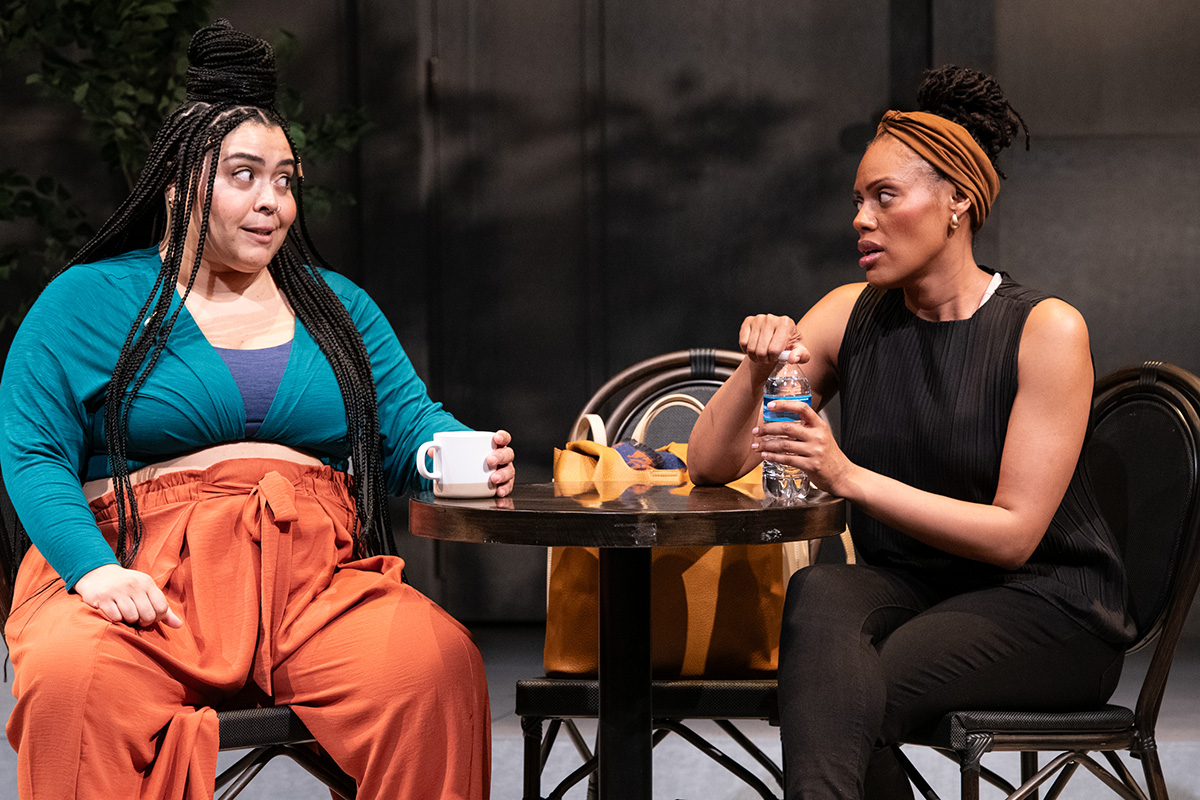
‘A Jumping-Off Point’
Through May 5
Round House Theatre
4545 East-West Highway, Bethesda, Md.
$46-$83
Roundhousetheatre.org
In Inda Craig-Galván’s new play “A Jumping-Off Point,” protagonist Leslie Wallace, a rising Black dramatist, believes strongly in writing about what you know. Clearly, Craig-Galván, a real-life successful Black playwright and television writer, adheres to the same maxim. Whether further details from the play are drawn from her life, is up for speculation.
Absorbing, timely, and often funny, the current Round House Theatre offering explores some serious issues surrounding privilege and who gets to write about what. Nimbly staged and acted by a pitch perfect cast, the play moves swiftly across what feels like familiar territory without being the least bit predictable.
After a tense wait, Leslie (Nikkole Salter) learns she’s been hired to be showrunner and head writer for a new HBO MAX prestige series. What ought to be a heady time for the ambitious young woman quickly goes sour when a white man bearing accusations shows up at her door.
The uninvited visitor is Andrew (Danny Gavigan), a fellow student from Leslie’s graduate playwriting program. The pair were never friends. In fact, he pressed all of her buttons without even trying. She views him as a lazy, advantaged guy destined to fail up, and finds his choosing to dramatize the African American Mississippi Delta experience especially annoying.
Since grad school, Leslie has had a play successfully produced in New York and now she’s on the cusp of making it big in Los Angeles while Andrew is bagging groceries at Ralph’s. (In fact, we’ll discover that he’s a held a series of wide-ranging temporary jobs, picking up a lot of information from each, a habit that will serve him later on, but I digress.)
Their conversation is awkward as Andrew’s demeanor shifts back and forth from stiltedly polite to borderline threatening. Eventually, he makes his point: Andrew claims that Leslie’s current success is entirely built on her having plagiarized his script.
This increasingly uncomfortable set-to is interrupted by Leslie’s wisecracking best friend and roommate Miriam who has a knack for making things worse before making them better. Deliciously played by Cristina Pitter (whose program bio describes them as “a queer multi-spirit Afro-indigenous artist, abolitionist, and alchemist”), Miriam is the perfect third character in Craig-Galván’s deftly balanced three-hander.
Cast members’ performances are layered. Salter’s Leslie is all charm, practicality, and controlled ambition, and Gavigan’s Andrew is an organic amalgam of vulnerable, goofy, and menacing. He’s terrific.
The 90-minute dramedy isn’t without some improbable narrative turns, but fortunately they lead to some interesting places where provoking questions are representation, entitlement, what constitutes plagiarism, etc. It’s all discussion-worthy topics, here pleasingly tempered with humor.
New York-based director Jade King Carroll skillfully helms the production. Scenes transition smoothly in large part due to a top-notch design team. Scenic designer Meghan Raham’s revolving set seamlessly goes from Leslie’s attractive apartment to smart cafes to an HBO writers’ room with the requisite long table and essential white board. Adding to the graceful storytelling are sound and lighting design by Michael Keck and Amith Chandrashaker, respectively.
The passage of time and circumstances are perceptively reflected in costume designer Moyenda Kulemeka’s sartorial choices: heels rise higher, baseball caps are doffed and jackets donned.
“A Jumping-Off Point” is the centerpiece of the third National Capital New Play Festival, an annual event celebrating new work by some of the country’s leading playwrights and newer voices.
Nightlife
Ed Bailey brings Secret Garden to Project GLOW festival
An LGBTQ-inclusive dance space at RFK this weekend
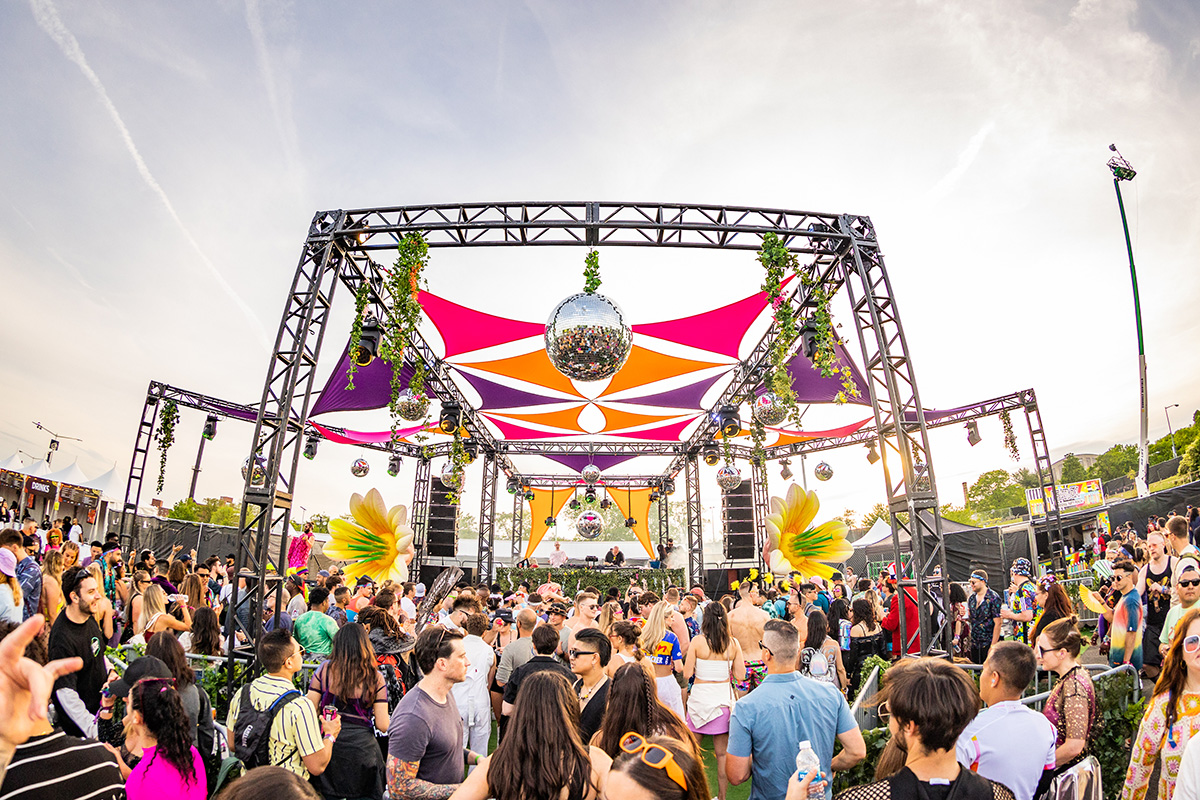
When does a garden GLOW? When it’s run by famed local gay DJ Ed Bailey.
This weekend, music festival Project GLOW at RFK Festival Grounds will feature Bailey’s brainchild the Secret Garden, a unique space just for the LGBTQ community that he launched in 2023.
While Project GLOW, running April 27-28, is a stage for massive electronic DJ sets in a large outdoor space, Secret Garden is more intimate, though no less adrenaline-forward. He’s bringing the nightclub to the festival. The garden is a dance area that complements the larger stages, but also stands on its own as a draw for festival-goers. Its focus is on DJs that have a presence and following in the LGBTQ audience world.
“The Secret Garden is a showcase for what LGBTQ nightlife, and nightclubs in general, are all about,” he says. “True club DJs playing club music for people that want to dance in a fun environment that is high energy and low stress. It’s the cool party inside the bigger party.”
Project GLOW launched in 2022. Bailey connected with the operators after the first event, and they discussed Bailey curating his own space for 2023. “They were very clear that they wanted me to lean into the vibrant LGBTQ nightlife of D.C. and allow that community to be very visibly a part of this area.”
Last year, club icon Kevin Aviance headlined the Secret Garden. The GLOW festival organizers loved the its energy from last year, and so asked Bailey to bring it back again, with an entire year to plan.
This year, Bailey says, he is “bringing in more D.C. nightlife legends.” Among those are DJ Sedrick, “a DJ and entertainer legend. He was a pivotal part of Tracks nightclub and is such a dynamic force of entertainment,” says Bailey. “I am excited for a whole new audience to be able to experience his very special brand of DJing!”
Also, this year brings in Illustrious Blacks, a worldwide DJ duo with roots in D.C.; and “house music legends” DJs Derrick Carter and DJ Spen.
Bailey is focusing on D.C.’s local talent, with a lineup including Diyanna Monet, Strikestone!, Dvonne, Baronhawk Poitier, THABLACKGOD, Get Face, Franxx, Baby Weight, and Flower Factory DJs KS, Joann Fabrixx, and PWRPUFF.
Secret Garden also brings in performers who meld music with dance, theater, and audience interactions for a multi-sensory experience.
Bailey is an owner of Trade and Number Nine, and was previously an owner of Town Danceboutique. Over the last 35 years, Bailey owned and operated more than 10 bars and clubs in D.C. He has an impressive resume, too. Since starting in 1987, he’s DJ’d across the world for parties and nightclubs large and intimate. He says that he opened “in concert for Kylie Minogue, DJed with Junior Vasquez, played giant 10,000-person events, and small underground parties.” He’s also held residencies at clubs in Atlanta, Miami, and here in D.C. at Tracks, Nation, and Town.
With Secret Garden, Bailey and GLOW aim to bring queer performers into the space not just for LGBTQ audiences, but for the entire music community to meet, learn about, and enjoy. While they might enjoy fandom among queer nightlife, this Garden is a platform for them to meet the entirety of GLOW festival goers.
Weekend-long Project GLOW brings in headliners and artists from EDM and electronic music, with big names like ILLENIUM, Zedd, and Rezz. In all, more than 50 artists will take the three stages at the third edition of Project GLOW, presented by Insomniac (Electric Daisy Carnival) and Club Glow (Echostage, Soundcheck).
Out & About
Washington Improv Theatre hosts ‘The Queeries’
Event to celebrate queer DMV talent and pop culture camp

The Washington Improv Theatre, along with the Mayor’s Office of LGBTQ Affairs and the Gay Men’s Chorus of Washington DC, will team up to host “The Queeries!” on Friday, April 26 at 9:30 p.m. at Studio Theatre.
The event will celebrate Queer DMV talent and pop culture camp. With a mixture of audience-submitted nominations and blatantly undemocratically declared winners, “The Queeries!” mimics LGBTQ life itself: unfair, but far more fun than the alternative.
The event will be co-hosted by Birdie and Butchie, who have invited some of their favorite bent winos, D.C. “D-listers,” former Senate staffers, and other stars to sashay down the lavender carpet for the selfie-strewn party of the year.
Tickets are just $15 and can be purchased on WITV’s website.
-

 State Department4 days ago
State Department4 days agoState Department releases annual human rights report
-

 South America2 days ago
South America2 days agoArgentina government dismisses transgender public sector employees
-

 District of Columbia2 days ago
District of Columbia2 days agoCatching up with the asexuals and aromantics of D.C.
-

 Politics4 days ago
Politics4 days agoSmithsonian staff concerned about future of LGBTQ programming amid GOP scrutiny

